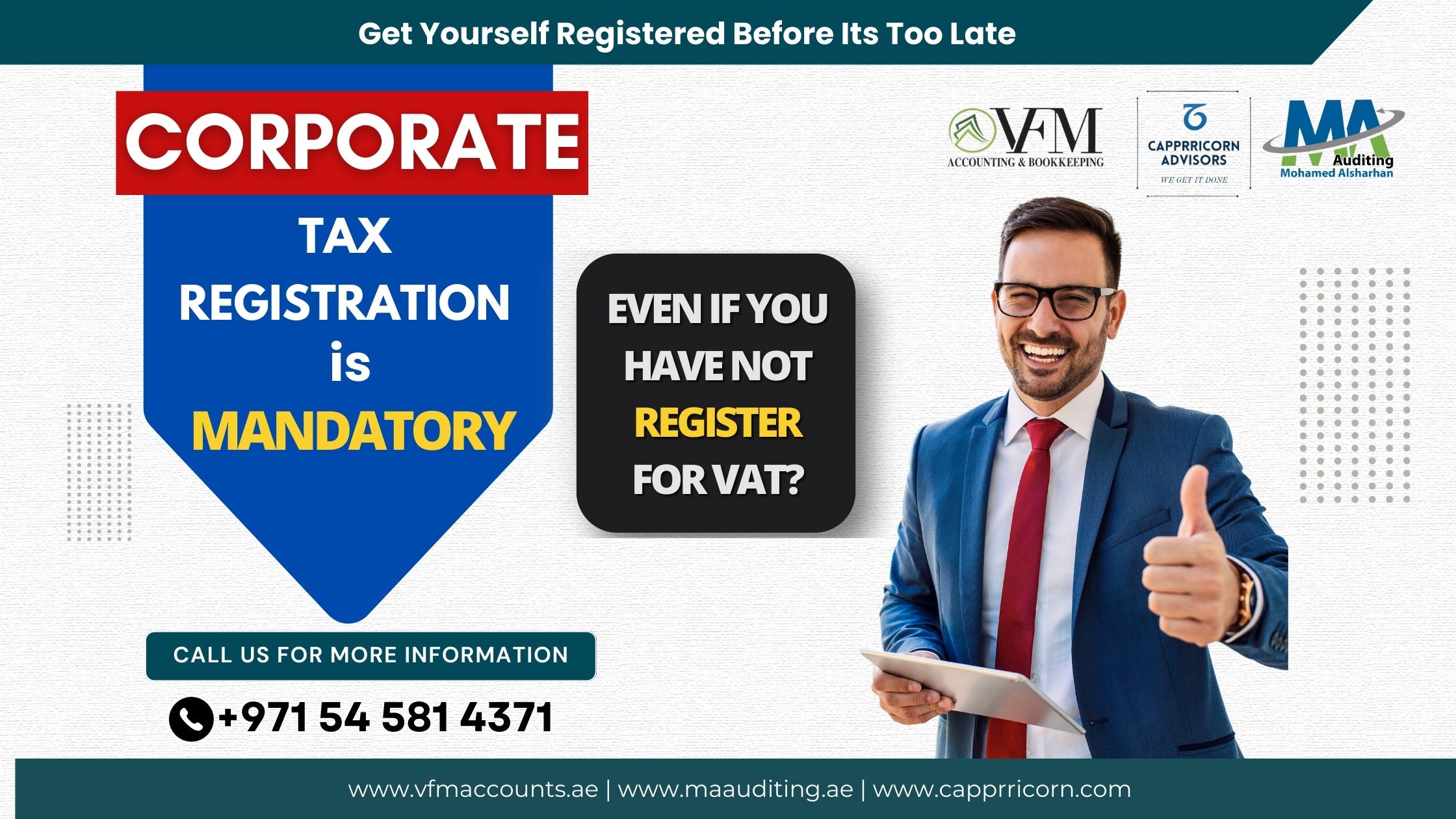UAE Corporate Tax
The United Arab Emirates (UAE) has long been renowned for its business-friendly environment, offering numerous incentives to attract foreign investment and foster economic growth. One of the most significant advantages of doing business in the UAE is the absence of a federal corporate income tax in most Emirates. However, there are certain exceptions and changes in tax regulations that business owners need to be aware of. In this blog, we will explore the impact of corporate tax in the UAE on business owners, understand the tax landscape, and discuss key considerations to navigate the tax implications effectively.
Contact Us
1. Understanding the Corporate Tax Regime in the UAE
As of the last update in September 2021, the UAE does not impose a federal corporate income tax on most businesses operating within its borders. This tax-free status has been a major draw for entrepreneurs and corporations, attracting foreign investments and facilitating economic diversification.
2. Exception: Taxation in the Oil and Gas Industry
While most Emirates in the UAE remain tax-free for businesses, the oil and gas industry is an exception. Companies operating in this sector may be subject to corporate tax, but the rate is generally competitive and favorable compared to other oil-producing countries. The tax treatment can vary based on the nature of activities and agreements with the relevant Emirates’ government.
3. Value Added Tax (VAT) Implications
Although corporate income tax is not applicable to most businesses, the UAE introduced a Value Added Tax (VAT) system in January 2018. As of the knowledge cutoff in September 2021, the standard VAT rate was 5%. Businesses with annual revenue exceeding a specified threshold are required to register for VAT, charge VAT on taxable supplies, and file periodic VAT returns.
4. Economic Substance Regulations (ESR)
To align with international standards set by the Organization for Economic Cooperation and Development (OECD) and the European Union, the UAE introduced Economic Substance Regulations (ESR) in 2019. These regulations require certain businesses to demonstrate substantial economic presence and genuine business activities in the UAE. Entities that fall within the scope of ESR must comply with reporting requirements to avoid penalties.
5. The Impact of Corporate Tax on Business Owners
a. Tax Efficiency and Savings: The absence of corporate income tax in most Emirates of the UAE provides significant tax efficiency and cost savings for business owners. Profits earned by the business can be reinvested or distributed to shareholders without being subject to corporate tax.
b. Competitive Advantage: The tax-free environment in the UAE gives businesses a competitive edge over companies operating in countries with higher tax rates. This advantage can attract foreign investors and foster economic growth.
c. Financing and Funding: A tax-free or low-tax environment can positively impact a company’s ability to secure financing and funding. Investors and lenders may find tax-efficient businesses more attractive, leading to improved access to capital.
d. Limited Impact on Business Structure: The absence of corporate income tax allows business owners to focus on other factors, such as market opportunities, infrastructure, and talent, when deciding on their business structure. Tax considerations play a minimal role in this decision.
e. VAT Compliance and Planning: While corporate income tax is not applicable, business owners must be vigilant about VAT compliance. Proper VAT planning and documentation are essential to ensure seamless operations and avoid penalties.
f. Economic Substance Requirements: For businesses that fall within the scope of Economic Substance Regulations, compliance is crucial to avoid penalties and maintain a good standing with the authorities.
g. Tax Treaties and Double Taxation Agreements (DTAs): The UAE has entered into various Double Taxation Agreements with other countries to prevent double taxation and encourage economic cooperation. Understanding the DTAs can be beneficial for businesses with international operations or transactions.
6. How to Optimize Tax Efficiency in the UAE
While the UAE’s tax regime is favorable for business owners, optimizing tax efficiency requires careful planning and compliance with relevant regulations.
Here are some key strategies to consider:
a. VAT Planning: Ensure proper VAT planning to manage tax liabilities effectively. This includes correctly classifying transactions, keeping detailed records, and timely filing of VAT returns.
b. Economic Substance Compliance: If your business falls under the scope of Economic Substance Regulations, maintain substantial economic presence and genuine business activities in the UAE to meet the compliance requirements.
c. Utilizing Free Zones: Operating a business in one of the many Free Zones in the UAE can provide additional tax benefits, such as 0% corporate tax and customs duty exemptions. However, be aware of restrictions on doing business outside the Free Zone area.
d. Structuring for International Transactions: For businesses engaged in cross-border transactions, consider structuring your operations to take advantage of favorable tax treaties and avoid double taxation.
e. Seek Professional Advice: Engage with tax advisors and legal experts who have expertise in UAE tax regulations to ensure proper compliance and optimize tax efficiency for your business.
Conclusion
The UAE’s business-friendly environment, with most Emirates offering a tax-free status for corporations, has been instrumental in attracting foreign investments and fostering economic growth. The absence of corporate income tax provides significant tax advantages for businesses operating within the country. However, businesses must remain vigilant about other tax implications, such as Value Added Tax (VAT) and Economic Substance Regulations (ESR), to ensure compliance and avoid penalties.
By staying informed about the changing tax landscape, seeking professional advice, and implementing effective tax planning strategies, business owners can make the most of the UAE’s favorable tax environment and set their ventures on the path to success and growth. As tax regulations and treaties may change over time, it is essential to keep updated with the latest developments and seek expert guidance to make informed decisions for your business.
Get a FREE Consultation with our top-notch consultants. You can also Call on +971 54 581 4371 | +971 56 177 0390 or fill in the below form book for an online meeting.


